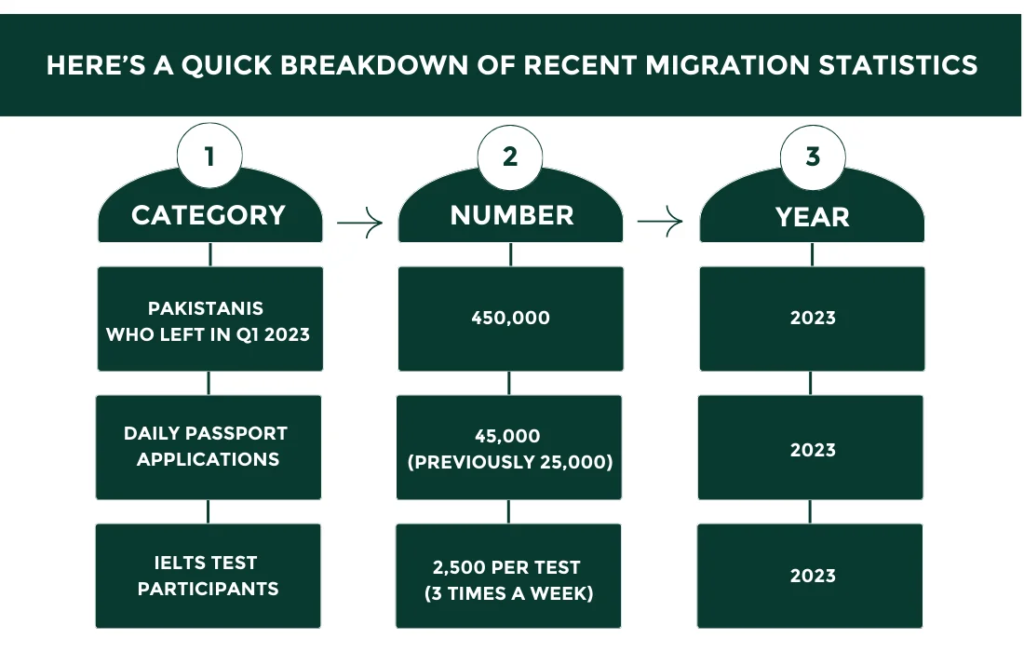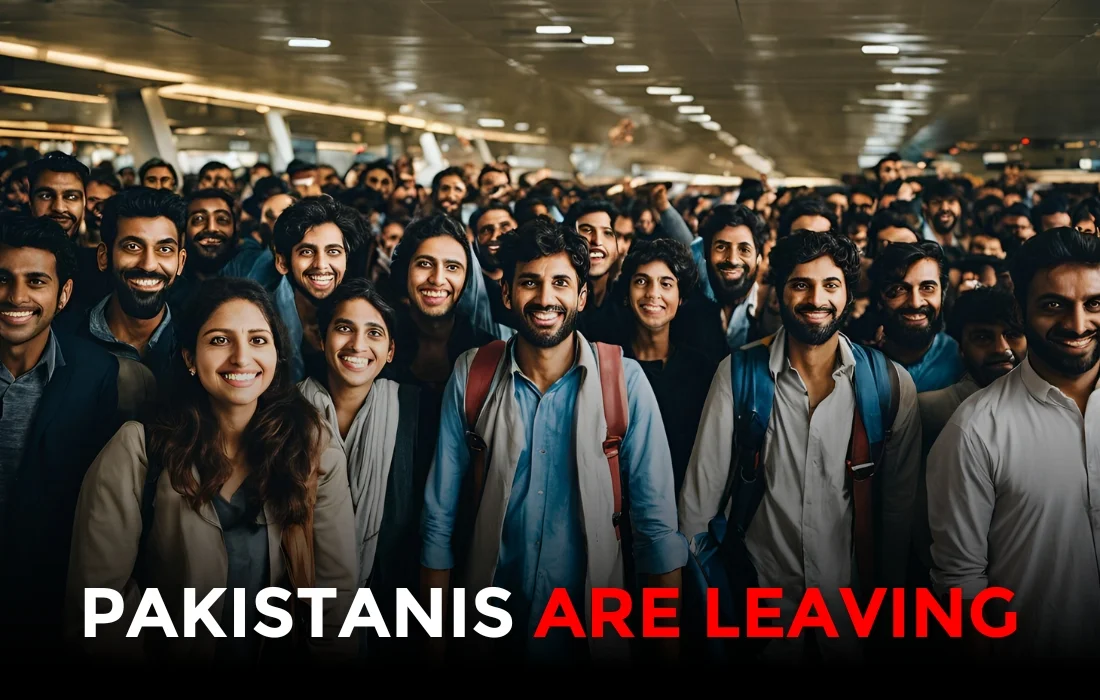Key Factors Driving Migration
Hyperinflation
The rising cost of living has forced many to seek higher-paying jobs abroad.
Unemployment
Limited job growth and fewer opportunities in Pakistan push skilled professionals to look for work internationally.
Better Living Standards
Countries like the UAE, Saudi Arabia, and Europe offer better salaries, healthcare, and overall quality of life.
Top Destinations for Pakistanis
Middle East
Countries like Saudi Arabia and the UAE remain popular choices due to their demand for skilled and unskilled labor. Saudi Arabia’s Vision 2030 aims to attract over one million Pakistani workers annually to support its infrastructure and development projects.
Europe and North America
Many young people seek scholarships to study in the UK, Canada, and the USA, hoping to build a career in these regions. Scholarships and work visas have become common ways for Pakistanis to migrate.
Dubai’s Growing Appeal
Dubai is a hotspot for professionals due to its tax-free income, booming economy, and growing real estate market. The city’s D33 Economic Plan has further boosted its attractiveness as a destination for work and investment.
Rising Passport and Visa Applications
The demand for passports and visas has surged in Pakistan. Officials from the Passport and Immigration Department have reported a twofold increase in daily applications, jumping from 25,000 to over 45,000 in 2023. Most applicants are job seekers or students planning to move abroad.

Opportunities Through Education
Educational migration is another driving factor. Many young Pakistanis take tests like IELTS and the UK Visa Test to qualify for foreign universities. Scholarships provide a chance for students to access better education and gain international exposure.
Popular Scholarships for Pakistanis
- Chevening Scholarship (UK)
- Fulbright Program (USA)
- Erasmus+ (Europe)
These scholarships open doors to a better future and improve the lives of families back home.
The Benefits and Challenges of Migration
Positive Impact: Remittances
One of the most significant benefits of migration is the increase in remittances. Overseas workers send billions of dollars back to Pakistan each year, helping families and stabilizing the economy. In 2023, remittances played a critical role in mitigating the country’s financial challenges.
Negative Impact: Brain Drain
While remittances are helpful, the loss of skilled professionals creates a gap in Pakistan’s workforce. Doctors, engineers, and IT professionals leaving the country mean fewer experts are available to support local development.
How Can Pakistan Retain Talent?
- To reduce the outflow of talent, Pakistan needs to:
- Create more job opportunities by investing in industries and startups.
- Offer competitive salaries and benefits to retain skilled professionals.
- Improve educational standards to match global requirements.
- Focus on vocational training aligned with international market needs.








Join The Discussion